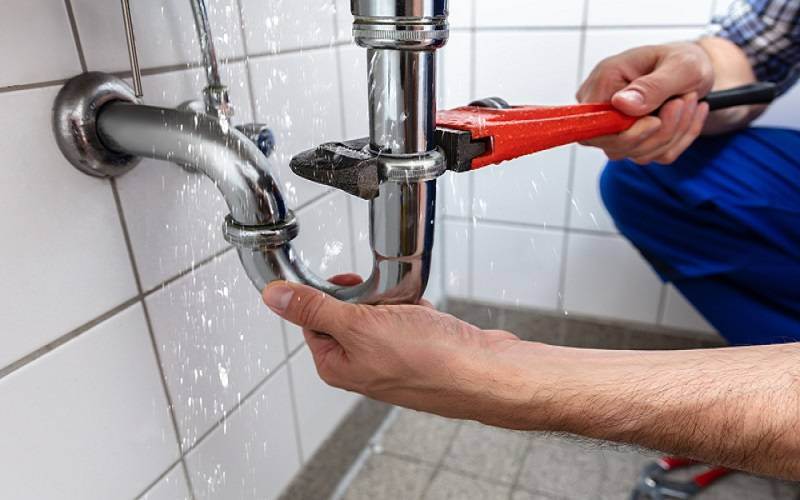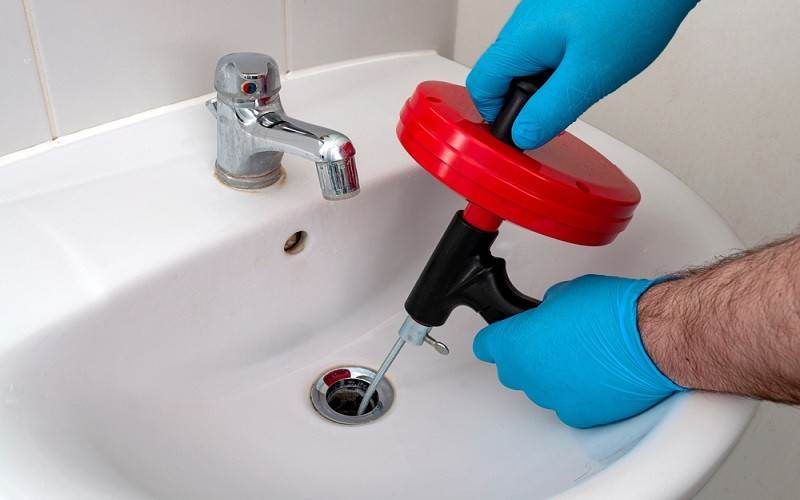Did you know that a person may call a plumbing service at least 15 times a year? That’s how common plumbing issues are. These may include leaky pipes, damaged water heaters, low water pressure, dripping faucets, and clogged drainage.
A plumbing system is an intricate network of pipes and fixtures, including traps, vent pipes, building drains, sanitary sewers, and soil pipes. It distributes water throughout the household and sends wastewater to local sewage systems.
At first glance, plumbing systems may seem simple, but try to go a little deeper and see how complex they are. Each pipe and fixture involved are interconnected, and every component plays a vital role in the seamless operation of the system.
Due to its complex nature, most homeowners rely on common myths and misconceptions about their plumbing systems. Such beliefs often cause more harm than good. These can make issues more complicated and create new concerns requiring expensive professional services.

Here’s a list of common plumbing myths and misconceptions that might’ve been passed on from one generation to another:
Plumbing Myth #1: It’s Safe To Flush ‘Flushable Wipes’
Despite its name, it’s unsafe to flush the so-called ‘flushable wipes’ down your toilet. The term is nothing but a marketing tool that attracts potential customers and tricks them into thinking such a thing exists.
Toilet paper quickly disintegrates when you flush it down your toilet, preventing the sewage system from getting clogged. However, this isn’t the case when it comes to flushable wipes. These wipes don’t break down as easily as toilet paper, clogging up your system. So, dont flush flushable wipes—and other objects such as tampons, cat litter, condoms, etc.
Note that you can only flush two things on your toilet: human feces and toilet paper. All other items belong to your trash can.
Plumbing Myth #2: It’s Safe To Use Drain Cleaners

Most people think that drain cleaners are 100% safe and effective because they’re often sold in most stores nationwide. However, they can be dangerous.
Drain cleaners contain harsh chemicals that can damage your pipeline and make it deteriorate at a faster rate. Plus, they’re not good for your health. Inhaling or getting them onto your skin and eyes can lead to severe injuries and complications.
Additionally, drain cleaners don’t always live up to their name. This might encourage you to try other drain-cleaning products that, when combined, can cause potentially dangerous chemical reactions.
Also, never use a plunger when adding drain cleaners to your sinks and bowls—this might splash harmful chemicals on you.
Plumbing Myth #3: A Leaky Faucet Means No Harm
This is one of the most common myths among homeowners. Unfortunately, it’s the other way around; a leaky faucet is a serious plumbing concern and must be repaired as soon as possible.
A leaky faucet can compromise the appearance of your sink by creating a residue that can be noticed from afar. Aside from that, it might require distressing repair costs if left untreated, so never belittle the problems it can cause.
Plus, a leaky faucet can waste a lot of water and increase your water consumption significantly. Did you know that average leaks can waste 10,000 gallons of water every year? That’s enough water to supply millions of households.
Plumbing Myth #4: If There Are No Signs Of Leak, Then There’s No Leak
If you can’t see any signs of leaks, that doesn’t mean it doesn’t exist. Leaks aren’t always visible, especially when it comes to pipes hidden underneath your flooring and beneath your drywall.
Unfortunately, it isn’t easy to find out if there’s a leak beneath your drywall and flooring. Hidden leaks only become visible once they’ve already done considerable damage such as chipped interior paint, discoloration, and mold growth.
Also, check your bills. If there’s an increase despite similar consumption levels, it’s most likely that one of your pipes is leaking. Only a professional plumber can detect and repair the leak appropriately to help you save water and lower your bills.
Plumbing Myth #5: Citrus Peels Are Good For Your Garbage Disposal Unit
You’ve probably heard someone tell you to put citrus peels (e.g., lemon and lime peels) on your garbage disposal unit to keep it fresh. Unfortunately, this is nothing but a misconception that’s been going around for decades, destroying someone else’s plumbing system.
Citrus peels can damage your garbage disposal unit. It can clog up the unit and cause its metal components, particularly its blades, to rust and dull.
Instead of using citrus peels, use a cleaner specifically developed for garbage disposal. And make sure to switch off the power lines when wiping the blades and other parts to prevent injuries.
Plumbing Myth #6: Hot Water Can Help Flush The Grease From Your Sink
Most homeowners believe there’s nothing wrong with pouring grease down their sinks as long as there’s hot water to push it. Yes, hot water may help melt and push the solidified grease but only to some extent.
Once the grease melts, you can wash it down your kitchen drains with additional hot water. However, it’ll cool and solidify again once it reaches your inner pipes, causing fat build-ups. This is where the real problem begins.
Instead, use a separate container when discarding used fats and oils, or wipe it with a paper towel to prevent serious plumbing issues.
Plumbing Myth #7: Rinse Your Faucets With Soap To Make It Clean
Soap and water are ideal for cleaning your hands, laundry, and dishes. But when it comes to cleaning your plumbing fixtures, it’d be best to use a special cleaner.
When you buy a cleaner, be sure to check its label to find out where you should use it. For example, look for a cleaner that comes with a label ‘for kitchen and bathroom use’ if you’re buying supplies for your kitchen or bathroom.
Plumbing Myth #8: Using A Wire Hanger Instead Of A Plumbing Snake
Homeowners who don’t have a plumbing snake would probably use an unfolded wire hanger to remove build-ups that block their pipes. Unfortunately, this will only cause more harm than good.
Wire hangers have sharp ends that can scratch the inner pipe surfaces, causing more build-ups and making your problems worse. Instead, use a plumbing snake or call a professional plumber for help.
Final Thoughts
Many myths and misconceptions in the world of plumbing sound convincing. Nonetheless, you shouldn’t believe everything you hear, especially if it’s something your late grandma or grandpa has said. There’s a high chance that it’s nothing but a false belief. It’d be best to leave plumbing issues to professional plumbers.









